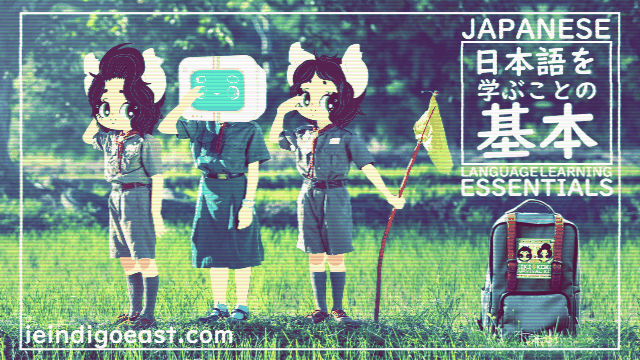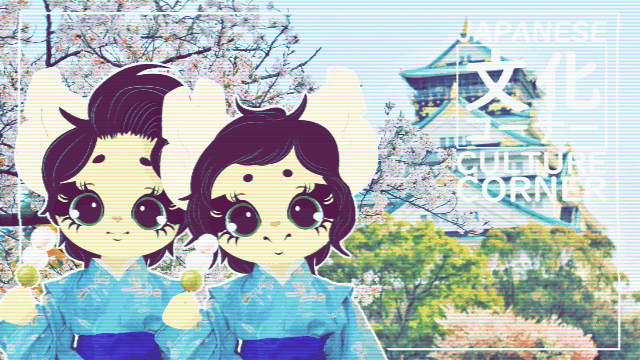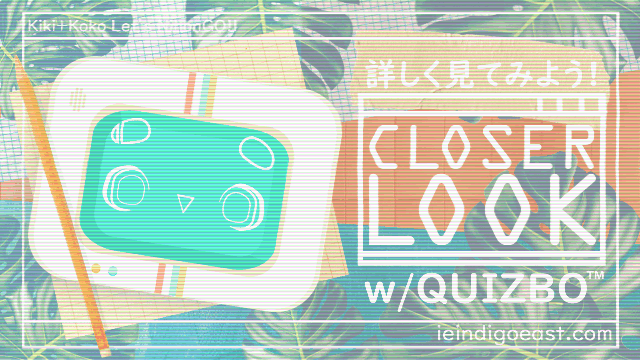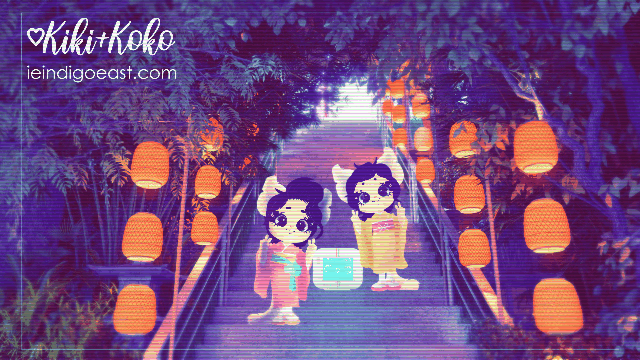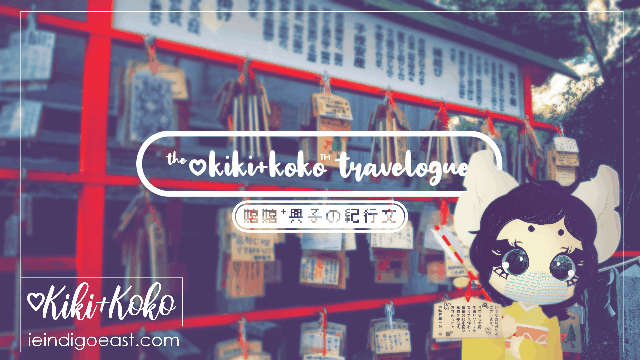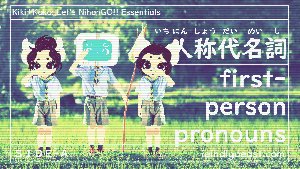(Full Title: 🔊I Want to Tell You | Focus: 出身はどこですか? Where are you from?| Earth Countries in Japanese | Asia | | Basic Answers (First Meeting) | 基本的な答え (初対面) || Kiki+Koko: Let’s NihonGO!! Japanese Language Learning Essentials )
皆様、こんにちにゃあぁ!Welcome to Kiki+Koko: Let’s NihonGO!! Online! Your trusted source of Japanese language and culture. We’re your guides, Kiki+Koko!! We take you by the hand and lead you every step of the way on your travels through Japanese language and culture. However, through Japanese language, you can travel the scope of the world! People from innumerable countries across the globe and the universe take an interest in learning Japanese. And, in turn, this can lead to connecting with more cultures of the world, which is quite enriching and can build experiences and friendships to last a lifetime! It’s something oddly uniting to learn another language cross-culturally, and that’s a significant side-effect that has really fuelled our passion for teaching! Of course, learning a language is rewarding on its own, but it’s so much fun to end up learning more about the world and the Earthlings dwelling on it. But, this lesson, we’ll be doing more than just leaning about the world, we’ll be learning the countries of the world, in Japanese!

Don’t want to talk about this planet anymore? Talk about space with this interplanetary vocabulary
Well, though we said the countries are innumerable, they’re actually very numerable. They’re so numerable in fact that there are about 200 of them currently, with over 300 by some accounts, not including the probably amazing underground cities that exist all over the world that may be under their own jurisdiction. But, that’s for another time. Overall, we’re so thankful to have readers from many countries all over the globe, and even still, it’s definitely important to recognise the countries of the world. Normally, we would go the textbook route and only include ‘major’ countries, but we would feel bad discerning some countries as ‘major’ countries and lessening others to not include them. So, yes, we’re doing the seemingly impossible… we’re taking the time to give you all of the countries of the world in Japanese.
After discussing with patrons we’ve come to the conclusion that nearly 200-300 sound bites may overload QUIZBO™’s system, and that if we could manage more memory on the site, we would, but instead, we’ll just make a still equally educational trade-off. The trade-off, here, is that this will actually be good practise pronouncing different hiragana and getting a feel for the other writing systems. But, for those looking to listen, we’ll simply include more useful questions in each of these segments, which should be more useful.
Obviously, it’s not required that you memorise every single one of these, but because it’s so many to tackle, we’re going to break these into continental sections, that way, if you are a traveller of the globe, you’ll have a good way to organise these mentally. And, if anything, this will be very useful for your geography quizzes. This is definitely for the sake of being fair to the entire planet Earth, even if this will be quite a bit to tackle.
 But, where did all of this begin? How did we get to this point? Well, this all started with our introduction to 疑問詞, gimonshi, otherwise known as (Japanese) question words. We walked you through quite a few basic ones so far, but we realised that questions are no good without answers. Even if you’re not the one saying them, it’s important to understand the answers from others. Which is why we’re helping you with every eventuality. Now, maybe you’ll find yourself unable to remember the countries you’ll learn, but you may be able to place the continent. Maybe they don’t know the country name in Japanese, and you can at least pinpoint the general part of the globe. For that, we also have you covered with the previous lesson concerning continents.
But, where did all of this begin? How did we get to this point? Well, this all started with our introduction to 疑問詞, gimonshi, otherwise known as (Japanese) question words. We walked you through quite a few basic ones so far, but we realised that questions are no good without answers. Even if you’re not the one saying them, it’s important to understand the answers from others. Which is why we’re helping you with every eventuality. Now, maybe you’ll find yourself unable to remember the countries you’ll learn, but you may be able to place the continent. Maybe they don’t know the country name in Japanese, and you can at least pinpoint the general part of the globe. For that, we also have you covered with the previous lesson concerning continents.
But, before we jump right into this, you’re going to want to have a full grasp of the previous lessons. They definitely build upon each other, and we like to make sure we don’t repeat ourselves too much unless it’s for emphasis or it’s so vital. But, all of the information is vital to this lesson. Whilst vocabulary is important, it’s difficult to get anywhere without grammar and other coupled vocabulary. That’s why we think you would benefit from the following linked lessons below. They cover particles, pronouns, how to make basic sentences, how to make basic question sentences, and more! So, have a look, revise/review, and get a good grasp on that, and this lesson will be so much more useful.
Welcome back! Or.. if you simply scrolled down, then hello, again! So, now that we have that out of the way, and your mind is filled with or refreshed with this new or old knowledge, we’re going to jump right into this!
Quick Introduction
Well, we tested the water, and we realised it could be a little cold, so we’ve decided to help you ease into this. So, whilst we already gave you a good bit of information to go on, we did want to give you the other essential information that should make this a bit more fun!
Below, we have some questions and answers you can use in tangent with the previous lessons and this lesson. Not only do we have the questions you’ll want, but the answers you’ll need. In the question section, we have a few ways to ask which country they are from. Obviously, this works as a great conversation starter for intermediate learners, but for beginners, this should get the basic information you want to know. But, more importantly, we’ve given you several ways to answer the question, which can in turn help you understand the answers you are given. So, even if you’re not from any of these countries, then you’ll benefit from knowing someone’s answer, and of course, it’s just generally useful essential knowledge.
Q: Which country are you from?
(あなたは) どこの 国の 出身ですか。
(あなたは) どこの くにの しゅっしんですか。
(anata wa) doko no kuni no shusshin desuka?
(あなたは) どの 国の 出身ですか。
(あなたは) どの くにの しゅっしんですか。
(anata wa) dono kuni no shusshin desuka?
Q: Which country do you come from?
(あなたは) どの 国から 来ましたか。
(あなたは) どの くにから きましたか。
(anata wa) dono kuni kara kimashitaka?
A: I’m from______.
(私は) ○○出身です。
(わたしは)○○しゅっしんです。
(watashi wa) ○○shusshin desu.
A: I come from______.
(私は) ○○から 来ました。
(わたしは)○○から きました。
(watashi wa) ○○kara kimashita.
A: ____.
○○です。
○○desu.

Don’t know how the Japanese writing system even works? This is the place to start~!
As we mentioned in the previous lesson, there are kanji that go along with some countries as well as some that have specifically different names and kanji. Normally, non-Southeast Asian countries will simply be written in katakana, but we’ve included the kanji for some that have associated abbreviations. Some simply don’t have a kanji equivalents. But, other Southeast Asian countries have only kanji names that are fully Japanese rather than simply a loan word with kanji basically randomly assigned to it historically.
If you’re still learning to read, there are a few new sound concepts, here, but it shouldn’t be too much of a stretch. If you’re having trouble, feel free to leave a comment, and we’ll bring the lessons concerning those readings earlier than planned previously. But, overall, this should be a useful experience
Let’s NihonGO!!
Basic Answers: Where are you from?
| 基本的な答え: 「出身は どこですか。」
Countries | 国々
These are in Japanese ‘alphabetical’ order. But, if you’re just looking for one specific country, or you’re revising/reviewing, you can use ‘ctrl+f’ on your keyboard on PC to open the finder, then type in the country name in English, or on mobile, open the ‘find in page’ on your respective browser options.
Azerbaijan
アゼルバイジャン【あぜるばいじゃん】 azerubaijan
Afghanistan
亜富汗斯坦 (アフガニスタン)【あふがにすたん】 afuganisutan
Abkhazia
アブハジア【あぶはじあ】 abuhajia
Republic of Artsakh
アルツァフ共和国【あるじゃふ きょうわこく】 arushafu kyouwakoku
Armenia
アルメニア【あるめにあ】 arumenia
Yemen
イエメン【いえめん】 iemen
Israel
イスラエル【いすらえる】 isuraeru
Iraq
イラク【いらく】 iraku
Iran
イラン【いらん】 iran
India
インド【いんど】 indo
Indonesia
インドネシア【いんどねしあ】 indonesia
Uzbekistan
ウズベキスタン【うずべきすたん】 uzubekisutan
Oman
オマーン【おまーん】 omaan
Kazakhstan
カザフスタン【かざふすたん】 kazafusutan
Qatar
カタール【かたーる】 kataaru
Cambodia
柬埔寨(カンボジア)【かんぼじあ】 kanbojia
The Turkish Republic of Northern Cyprus
北キプロス・トルコ共和国【きたきぶろす・とるこきょうわこく】 kitakipurosu ・ toruko kyouwakoku
Cyprus
キプロス【きぷろす】 kipurosu
Kyrgyzstan
キルギス【きるぎす】 kirugisu
Kuwait
科威都(クウェート)【くうぇーと】 kueeto
Saudi Arabia
サウジアラビア【さうじららびあ】 sauji arabia
Georgia
ジョージア【じょーじあ】 jyoojia
Syria
叙利亜(シリア)【しりあ】 shiria
Singapore
新嘉坡(シンガポール)【しんがぽーる】 singapooru
Sri Lanka
スリランカ【すりらんか】 suriranka
Thailand
泰(タイ)【たい】 tai
South Korea (abbreviation)
韓国 【かんこく】kankoku
Republic of Korea (South)
大韓民国【だいかんみんこく】 daikanminkoku
Tajikistan
タジキスタン【たじきすたん】 tajikisutan
China (abbreviation)
中国 【ちゅうごく】chuugoku
People’s Republic of China
中華人民共和国【ちゅうかじんみんきょうわこく】 chuukajin minkyouwakoku
Taiwan
台湾【たいわん】 taiwan
North Korea
北朝鮮【きたちょうせん】 kita chousen
Democratic People’s Republic of North Korea
朝鮮民主主義人民共和国【ちょうせんみんじゅじゅぎじん みんきょうわこく】 chousen minshushugi jinmin kyouwakoku
Turkmenistan
トルクメニスタン【とるくめにすたん】 torukumenisutan
Turkey
土耳古(トルコ)【とろこ】 toroko
Japan
日本【にほん】 nihon
日本【にっぽん】 nippon
日本国【にほんこく】 nihon-koku
Nepal
捏巴爾(ネパール)【ねぱーる】 nepaaru
Bahrain
バーレーン【ばーれーん】 baareen
Pakistan
巴基斯担(パキスタン)【ぱきすたん】 pakisutan
Palestine
パレスチナ【ぱれすちな】 paresuchina
East Timor
東ティモール【ひがしてぃもーる】 higashi teimooru
Philippines
比律賓(フィリピン)【ふぃりぴん】 fuiripin
Bhutan
不丹(ブータン)【ぶーたん】 buutan
Brunei
ブルネイ【ぶるねい】 brunei
Vietnam
ベトナム【べとなむ】 betonamu
越南【えつなん】etsunan
Malaysia
馬来西亜(マレーシア)【まれーしあ】 mareeshia
South Ossetia
南オセチア【みなみおせちあ】minami osechia
Myanmar
ミャンマー【みゃんまー】 myanmaa
Maldives
モルディブ【もるでぃぶ】 morudeibu
Mongolia
モンゴル【もんごる】mongoru
Jordan
ヨルダン【よるだん】yorudan
Laos
羅宇(ラオス)【らおす】 raosu
Azerbaijan
黎巴嫩(レバノン)【らばのん】 rebanon
If you live in Asia, and we didn’t include your country, we apologise, but encourage you to leave a comment below! Your country is probably special and interesting, and we would love to get the chance to learn more about it. As two cat-like alien Japanese teachers and a Heisei era computer robot, there are definitely limitations to our ability to include so many countries in one article. In future, there may be new countries, and new territories, and we’ll try to do our best to come back to this and update it. If this happens, we also encourage you to leave a comment, and we’ll update the list right away. Whilst we would normally reckon basic country vocabulary to be evergreen content, planet Earth and Earthlings aren’t always so simple.
We do hope that this will be helpful to you in your Japanese studies! And, without even knowing, you’re already learning two other skills in Japanese language which we’ll explain in the next lessons. But, for now, know that your efforts in learning something as simple as a country name makes learning other pieces of information that are normally a bit more muddled in English quite a bit easier in Japanese. But, to make sure you get the next bits of essential language learning skills for your Japanese language survival kit, be sure to support the site and the future of learning by subscribing to the Electronic Mailing List of Tomorrow, today, found usually at the bottom of the site page or the sidebar on desktop. You’ll get the latest tools and resources to surviving in Japanese language in straight to your inbox. That’s articles, videos, podcasts, and more.

Grooving to the content we’re creating? You can leave a TIP in the TIP♡JAR to keep it going!
(Can’t? No worries! The content is free for everyone! We’re just glad you’re here!! Bring friends if you like~!)
Also, we want to make sure we can continue to offer this, the full story, and even more content for months and years to come whilst also surviving with food and shelter. It’s usually one or the other, otherwise. If you want to ensure our survival as well as the continuation of the creation of new and even better content, feel free to leave a TIP in the TIP♡JAR to keep it going, or for long term contributions in increments, you can join our Patreon where our gracious host, Indigo East, usually posts behind-the-scenes, sneak-peeks, exclusive content, and more. And, we join in as well! Again, if you’d like to support our survival and the creation of more content to be made available to as many people as possible, you can also share the content! You can easily share via Twitter and Pinterest where you can retweet and repin respectively without even having to type! Gestures like that go a long way, and we appreciate it.
Thank you for joining us! We hope that you continue with us on this adventure, and we appreciate that you’ve chosen us to assist you on your Japanese learning journey!
♡Kiki+Koko






Assist our friendly world domination and follow us via The Internet.







